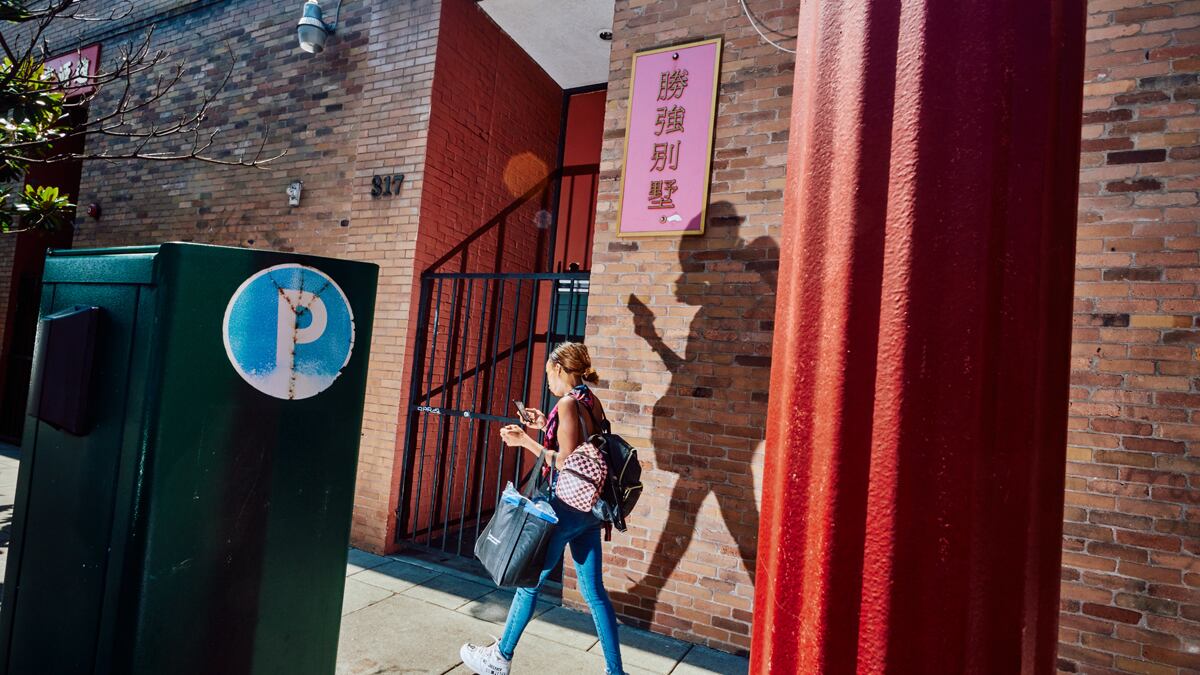Address: 317 NW 4th Ave.
Year built: 1905
Square footage: 10,000
Market value: $3.9 million
Owner: Yick Kong Corporation
How long it’s been empty: It’s not.
A WW reader reported the Hop Sing Tong building in Chinatown as vacant. And on a recent Wednesday afternoon, it certainly appeared to be. The doors were barred. A shirtless man slept on a couch out front.
But the building is actually not vacant. The Portland chapter of the 150-year-old Chinese American organization Hop Sing Tong owns the building and still meets there—although it’s done so less frequently during the pandemic, says Victor Leo, president of the corporation made up of Hop Sing Tong members that owns the building and the neighboring commercial space.
Hop Sing is one of several tongs that flourished in the United States in the 20th century as Chinese immigrants arrived. The organizations quickly became associated with gambling and violence as their members took up arms and competed for influence.
Now, the tong is largely a social club, says Leo, a licensed clinical social worker. Its remaining members are aging and they meet to catch up and chat.
For 60 years, the neighboring commercial space was home to Fong Chong, a family-run Chinese grocery store and, for a period of time, one of Portland’s best dim sum restaurants. It closed in 2014, and the building has stood vacant since. Efforts to open a variety of businesses there, from strip clubs to a cannabis processing plant, have gone nowhere.
Leo blames city bureaucracy for the building’s extended vacancy. “Three or four people tried to get through the red tape, but they failed,” he says.
That is, until this summer, when Rainbow City, an all-ages arts venue, moved to the Hop Sing Tong building from across the river on East Burnside, where it opened in 2020. Strawberry Pickle, one of the owners, says she sold her Hillsboro house and closed her in-home preschool business to make her dream, a home for Portland’s wackiest artists, come true.
The venue celebrated its grand opening in the new space with a July 4 dance party. Last Thursday, it hosted Charlie Von Doom, who describes himself on Twitter as a “dystopian DJ and producer.” At one of the venues’ most popular events, hosted by Sword Society, participants dance and spar with lightsabers.
Pickle and her business partner, Vin Eden, shoulder the $7,000 rent. They’re now breaking even, she says. And despite the nearby abandoned buildings and occasional busted car windows, she feels as though life is returning to the neighborhood.
“The landlords were like, oh my gosh, we’d rather see 100 weirdos and artists coming and going than having it be empty or just a standard nightclub,” Pickle says.
Leo agrees. He wants to shed the neighborhood’s reputation for vice. But the rise in visible homelessness and crime has left him discouraged.
“I’d love to see a booming Chinatown,” Leo says, “but I don’t think it’ll happen.”
